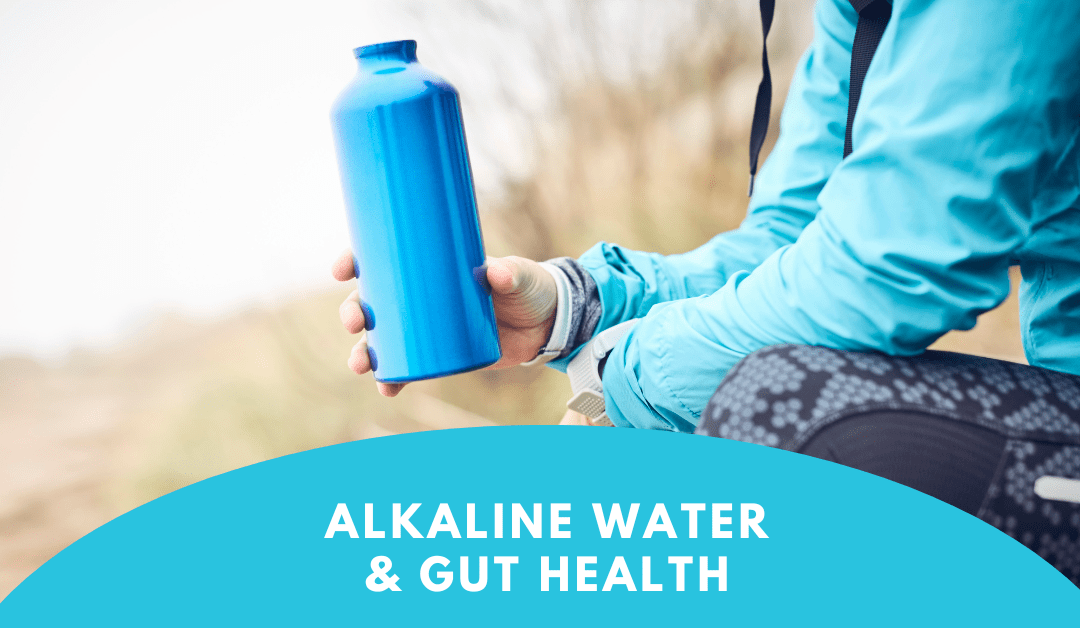I wrote a blog years ago discussing a widely asked question at the time: Does supplementing ascorbic acid affect our microbiome negatively?
My research concluded that supplemented ascorbic acid, unless buffered, has a low pH, and our stomach is supposed to be acidic, so if anything, for many people, it could help digestion if taken with a meal.
In addition, our acidic stomach chyme is neutralized within our duodenum but endogenously produced and released bile by our liver, gallbladder, and bicarbonate by our pancreas, which is basic. Recently, I have been asked a similar question, does the ingestion of alkaline water negatively affect our digestion and microbiome?
Does the Consumption of Alkaline Water Negatively Affect Our Digestion?
It depends on when you consume your alkaline water.
It is probably not a great idea to ingest alkaline water right before, during, or after a meal. You want your stomach to reduce its pH through stomach acid production and release to digest your food chemically.
No part of your body is sterile. However, your stomach contains fewer colony-forming units of bacteria than the rest of your digestive system because of its lower pH and frequent exposure to oxygen. Many microorganisms cannot thrive in a low pH environment. Your stomach having a lower pH is one of the first lines of defense your body has to protect itself from microorganisms you frequently ingest when eating food and consuming liquids.1 2 3
Consuming alkaline water with meals increases your stomach’s pH by neutralizing stomach acid, hindering chemical digestion. Food and liquid remain longer in your stomach, which now has a higher pH, leading to increased microbial growth because of more time to ferment food and drink within the stomach.
Your stomach has to reach around a pH of two for chyme within the stomach to start emptying into the duodenum for further digestion through the pyloric sphincter. Your stomach must produce more stomach acid to reduce your stomach pH and overcome the neutralization from your consumption of alkaline water so that your stomach chyme can be digested and emptied into your duodenum. Because you neutralize your stomach acid by consuming alkaline water before, after, or during meals, microbes can also thrive better within your stomach with an elevated pH (and more items to ferment).
Also, consumption of alkaline water inactivates a protein-digesting enzyme known as pepsin, which further handicaps your digestion and increases microbial fermentation within the stomach. Upper gut dysbiosis may occur if your stomach becomes more alkaline over time.
If you consume alkaline water in small doses a few ounces hours after a meal on an empty stomach, its negative effect on digestion might not be as severe.
I do not recommend you consume a lot of alkaline water (more than a couple of ounces) before bed because at night, your stomach pH is quite acidic to reduce microbial growth and to enhance digestion (migrating motor complex function) during your nightly fasting while sleeping.4 5 6
A 2018 study showed that a two-liter minimum daily consumption of alkaline water with a pH of 9 by a controlled group of nineteen males (small sample size) saw “no significant effect on neither gut microbiota, glucose regulation, nor low-grade inflammation,” compared to a controlled group of nineteen males that consumed a two-liter minimum daily consumption of water with a pH of 7.
Alkaline bile and bicarbonate are released into your duodenum to neutralize acidic stomach chyme. Consumption of alkaline water likely does not affect your microbiome past your duodenum, where your ileum is alkaline, slightly above a pH of 7. I agree with the results of the study. Though frequent ingestion of alkaline water might hinder your stomach from digesting food/beverages properly and cause stomach dysbiosis, it is doubtful that it would cause dysbiosis or slow your digestion past your duodenum.[67 https://www.nature.com/articles/s41598-018-34761-5] 7
Should You Drink Alkaline Water?
On occasion, yes. I like to consume natural alkaline water like Mountain Valley Spring Water in green glass bottle hours away from my meals. Mountain Valley Spring Water can be quite refreshing and tasty when it is very cold.
Many alkaline spring waters contain alkalizing minerals, including magnesium and calcium or bicarbonate, which can be healthy to consume.
If you suffer from silent reflux, gargling with alkaline water to inactivate pepsin in your oral cavity and throat throughout the day might be helpful. However, I would not drink alkaline water frequently because it can hinder digestion and may increase your risk of developing upper gut dysbiosis.8 9
Are you suffering from Upper Gut Dysbiosis, or any other health issues?
I’ve helped tens of thousands of readers achieve their health goals through my coaching calls. One session can save you thousands of hours of research. Click here to book your first session.
- Enders, Giulia, Gut: The Inside Story Of Our Body’s Most Underrated Organ, Greystone Books, 2015. ↩
- https://journals.plos.org/plosone/article?id=10.1371/journal.pone.0134116 ↩
- https://pubmed.ncbi.nlm.nih.gov/12870767/ ↩
- https://journals.plos.org/plosone/article?id=10.1371/journal.pone.0134116 ↩
- https://www.ncbi.nlm.nih.gov/pmc/articles/PMC6580352/ ↩
- https://pubmed.ncbi.nlm.nih.gov/22844861/ ↩
- https://pubmed.ncbi.nlm.nih.gov/10421978/ ↩
- https://www.ncbi.nlm.nih.gov/pmc/articles/PMC5676322/ ↩
- https://www.montana.edu/news/10053/msu-study-finds-that-drinking-mineralized-water-might-provide-health-benefits ↩






